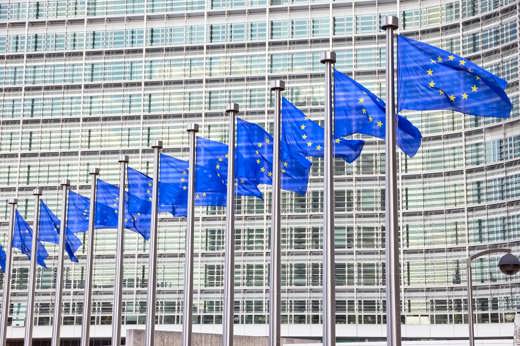Beyond COVID-19: The Role of Private Capital in Recovery
02 July 2020
With the world now passing 12 million confirmed cases of COVID-19, it’s clear that the virus has impacted people the world over, both personally and professionally and, as our webinar on COVID-19 – The PE perspective last month highlighted, private equity has by no means been immune to its challenges.
While the coronavirus’s impact on private equity has been significant in terms of immediate disruption, the repercussions for the industry will manifest themselves in numerous other ways over the longer term.
Private equity has a real opportunity not just to respond to the challenges the pandemic has presented but also to take a proactive role in economic rebuilding and recovering. Private equity has a window of opportunity to benefit economies and communities in very tangible ways. And that brings with it a double reputational dividend.
Immediate Response
Of course, the market and economic disruption the pandemic has caused is unprecedented. Until recently, around 25% of the global population was in a state of ‘lockdown’; the US and Chinese economies both contracted sharply in Q1, about $100bn has exited emerging economies, and the IMF predicts future global growth of -4.9%. Closer to home, the Office of Budget Responsibility forecasts a 35% reduction in UK GDP in Q2.
For private equity, the initial focus has been on survival. Fund board directors are having to think quickly and carefully about the safety of colleagues and their families, business continuity, ensuring ongoing regulatory compliance in the face of obstacles such as a lack of face to face meetings, and supporting the needs of their portfolio companies and investors.
Similarly, portfolio companies have been quick to implement short term measures, undertaking portfolio, operational and regulatory reviews, and looking at cash conservation and liquidity needs, all alongside rapidly implementing working from home measures. Some sectors have been more disrupted by the pandemic than others. Portfolio companies have been working overtime to understand the full impact on, for example, the hotel, leisure, and travel sectors. On the other hand, the healthcare, digital, logistics, and food sectors have fared much better. Together this has all underlined the importance of portfolio companies adopting a tailored approach.
Where do we go from here?
As markets and communities begin to benefit from less restrictive living and working conditions, the private equity industry is looking at the bigger picture and what lies beyond lockdown. Fundamentally, the sector continues to have the capacity to save lives and livelihoods.
The portfolio companies of private equity firms contributed directly to the public health effort, turning over manufacturing production to PPE for senior care facilities, donating masks to front line health workers, and deploying technology to advance COVID-19 vaccine development. And in the longer term, as the focus turns to economic recovery, there is a valuable opportunity for private equity to continue to demonstrate its valuable role on societies and economies.
Public finances around the world are under pressure. The IMF predicts the UK alone will need to borrow around £400bn – leading to an overwhelming requirement for private capital, as governments look for ways to revive badly hit industries, invest in health services, and rebuild communities.
Private equity’s distinct capabilities will come to the fore – more agile, with faster execution than public markets; it has the cash and the skills to support job maintenance and job creation. Together, this means private equity can be a critical part of any meaningful economic recovery.
There is usually a focus on distressed assets and debt fund opportunities in the wake of significant market disruption, with rising defaults and insolvencies likely to challenge universal banks. Private equity can step in and fill some of those gaps. To achieve this aspirational agenda will require agile management and responsive service providers that can provide quick and accurate data, information insights, and smooth reporting flows.
Will ESG fall by the wayside?
Pre-crisis progress was underway as private capital sought to understand how it could align financial return with societal and environmental good. There’s little doubt that the pandemic has brought this dynamic even further into the mainstream and accelerated progress.
The social impact of COVID-19, of course, will be enormous. This increased social awareness is filtering through to all sectors and industries, prompting questions about the contribution different stakeholders make to society. It is feasible – in fact, quite likely – that in years to come, investors and stakeholders will look back on 2020 and ask questions about what businesses did in the COVID-19 era. Were firms responsive, what actions did they take, and how did they change? The answers to those questions may well influence supply chains and investor decisions long into the future.
Those in the private equity industry who understand the role they can play in addressing the pandemic’s societal impacts across the ESG spectrum will be winners in the long-term. And the good news is that they can make a genuine impact – access to capital, excellent support networks of advisers, and high-quality infrastructures and knowledge bases from which to make informed and directed decisions set them apart.
The private equity model is well suited to unprecedented moments and situations. Patient capital can avoid forced sales during periods of dislocation and control the timing of exits, which will be critical going forward. Strained public finances are here to stay, with private capital much in demand, and an essential part of managing dislocation to support long-term economic recovery. Private equity can seize this window of opportunity to make sustainability and ESG core to its approach, securing not only its future, but also that of millions of regular citizens worldwide.

Private Equity
LEARN MORE LEARN MORE Click here 




